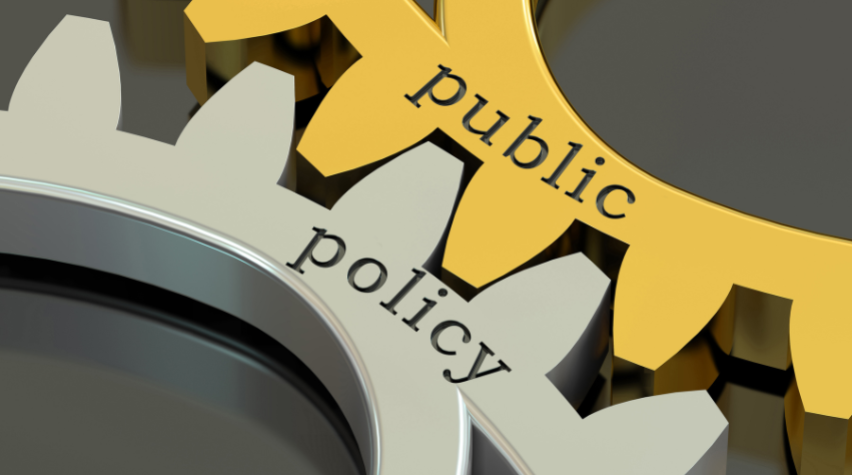
Any AIChE-wide stance on a public policy has to represent AIChE members’ opinions and expertise fairly. The following post helps explain how members can help identify and develop such policies within AIChE's commitment to fairness and its legal bounds.
Taking a stand on public policy
When AIChE takes a public policy stand, the policy represents the Institute’s members and the chemical engineering profession. It is helpful to know how AIChE decides to take such stands, constructs statements, vets them before release, and disseminates them.
Policy topics may be proposed by the Board of Directors, AIChE’s professional staff, the Public Affairs and Information Committee (PAIC), or any AIChE member. Reporting to the Board, PAIC is charged with handling such proposals, staying abreast of any relevant issues, and coordinating communications about public affairs. The response path is designed to allow quick action or long, thoughtful development and approval for any proposed public statement.
Is an official policy needed?
The PAIC Chair and AIChE Executive Director are assigned the responsibility to decide jointly what process is appropriate. Their first decision is whether the topic is one where AIChE should engage. For example, the statement’s topic must be relevant to the three pillars of the Institute’s aspirational statement, which include: advancement of the profession and technology; career growth and education; and the meeting of societal needs.
Policy or information?
The second decision is whether the statement is one of information vs. policy. AIChE policies aren’t needed for every matter of public interest that involves chemical engineering. Sometimes our greatest contributions can come by providing clear information and explanations. In the past that has been achieved through white papers distributed directly to the members, the public, and government officials; CEP articles and the quarterly ChE in Context columns; AIChE Engage discussions; ChEnected blog posts; and op-eds or letters to the editor.
How much vetting and approval?
The final decision is how much vetting and approval will be needed. An AIChE-wide policy is more sensitive than simply providing information. For example, the PAIC Chair and the Executive Director can jointly and immediately approve a simple statement of existing policy or a stance based on that policy; that statement will then be reported to the PAIC and the Board. More typically, they will decide that the PAIC should develop a draft for Board approval. Or, the Board may choose to develop a policy directly, as with the 2021 IDEAL (i.e., inclusion, diversity, equity, anti-racism, and learning) statement’s commitment to creating and nurturing an inclusive, respectful, and welcoming environment.
The continuing development of AIChE’s climate change policies provides another example. AIChE Spring and Annual meetings had featured analyses and debate of climate-change issues. In 2014, AIChE released its initial climate-change policy that focused on organizing and disseminating information to government and the public.
In response to member requests for a policy expressly asserting the reality of climate change, the Board charged PAIC in spring 2017 with establishing whether there was widespread support among the full AIChE membership for such a policy. PAIC established a Climate Change Task Force, which led a two-year AIChE Engage series of strictly moderated and specifically directed technical discussions of the 2009 “Endangerment Findings” of the U.S. Environmental Protection Agency (EPA), the basis for U.S. law and policy regarding regulation of greenhouse gases. Results were shared with the membership through this column.
In November 2019, the AIChE Climate Change Policy Statement was issued by the Board. The policy emphasizes the important role of chemical engineers in addressing challenges and developing solutions related to climate change through well-founded engineering and economic approaches. To couple it with action, the Climate Solutions Community (TCSC) was created as an AIChE Technical Community.
The caveats
There are two important caveats. First, AIChE is a member organization, not a trade organization, so it does not speak for members’ companies. AIChE members provide their diverse insights from their personal and professional experiences in companies, consultancies, academic institutions, government, and other workplaces. In their own interests and in the public interest, companies sponsor and participate in AIChE activities and events, including consortia such as the Center for Chemical Process Safety (CCPS) and the RAPID Manufacturing Institute.
Also, this is different from lobbying. AIChE has historically chosen to lobby only on professional topics. As a nonprofit 501(c)(3) organization headquartered in the U.S., AIChE is limited in the amount of money it can spend on lobbying and still retain its tax-exempt status. It files an annual IRS Form 990 of financial information, where it must report any lobbying, defined there as “any attempt to influence foreign, national, state, or local legislation, including any attempt to influence public opinion on a legislative matter or referendum or political activities.”
After policies are established, they are reviewed occasionally to ensure continued relevance, to validate alignment with ongoing needs, and to provide any updates in language. To propose a topic for AIChE to address with information or a new policy, contact the PAIC.
Phillip R. Westmoreland is a professor at North Carolina State Univ. He was previously the chair of PAIC and the 2013 AIChE President.
This article is also featured in the ChE in Context Column of the July 2023 issue of CEP. Members have access online to complete issues, including a vast, searchable archive of back-issues found at www.aiche.org/cep.


